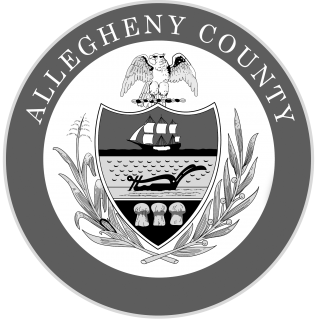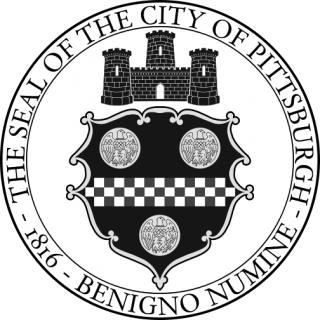|
as featured December 12, 2022 BisNow, by Julia Troy, Studio B Editor
As commercial real estate continues to work toward becoming a more diverse and equitable industry, The Buccini/Pollin Group is delivering a new model for inclusion and community reinvestment in Pittsburgh’s historic Hill District. Across the nation, communities are still grappling with the history of redlining, a practice that began in the 1930s when the federal government and mortgage industry used color-coded maps to racially segregate American neighborhoods and schools. Federal highway projects, forced eviction via eminent domain and housing discrimination policies were deployed to displace African Americans from their homes and prevent them from purchasing real estate. Simultaneously, more than $221B was allocated to white-only suburbs and schools, while African American neighborhoods received “urban renewal” developments that spawned 3,000-plus projects in 200 cities and towns across the U.S. Pittsburgh’s Lower Hill District and the 12 public housing projects throughout the Greater Hill District were among the nation’s first of those major construction efforts to commence. While redlining was banned under the Fair Housing Act of 1968, many neighborhoods still feel the impact of the practice today and have lost out on investment opportunities as a result. In Pittsburgh, the Lower Hill Development Team is reinvesting in one such neighborhood, the Hill District, and creating a development that celebrates and invigorates the local community. “This is a transformational project with heavy social impact and reinvestment in neighborhoods that have been disinvested in deliberately, based on these redline guidelines,” The Buccini/Pollin Group Vice President of Development Bomani Howze said. The Lower Hill Redevelopment is a $1B, 28-acre mixed-use project that will feature a diverse mix of office, retail and multifamily development, entertainment venues, restaurants, pedestrian corridors and vibrant open spaces. In September 2021, the First National Bank Corp., the Pittsburgh Penguins, Clay Cove Capital and the Buccini/Pollin Group joined members of the Historic Hill District community to break ground on the FNB Financial Center, a 26-story mixed-use tower that will bring 475K SF of Class-A office space to the area, in addition to inviting plazas for community events and retail kiosks in support of small, local businesses. Bisnow sat down with Howze and Chris Buccini, co-president of the Buccini/Pollin Group, to learn more about the project and what it means to the company and to the region. Bisnow: Who is part of the development team for the project? Howze: Along with the Buccini/Pollin Group, we have a minority-owned equity investment partner, Clay Cove Capital. PAR, the real estate development arm of the Pittsburgh Penguins, helped complete the first round of approvals and infrastructure improvements for the site. First National Bank is not only an anchor tenant of ours, but also a partner committed to seeing this entire 28-acre development come to fruition while reinvesting in the Greater Hill District. The Lower Hill Development Team is also partnering with Hill District-based OLMEC Development Co. on a joint venture to create the development’s residential units. Bisnow: How is the development coming along? Howze: Back in September of 2021, we broke ground on the FNB Financial Center at the base of Washington Boulevard and Bedford Avenue, in the part of Lower Hill that is directly adjacent to Downtown Pittsburgh. Starting here on this restorative reconnection effort was deliberate to begin our goal of addressing some of the social ills that came from redlining. We feel there is no better place to have a catalytic project that is a beacon of reinvestment back into the neighborhood. We just finished the concrete podium for FNB’s new headquarters and have started to erect the steel and glass shell. We’re also getting ready to go before the city planning commission for approvals for the next $110M mixed-use project: a 910-space parking garage and a Live Nation music venue. Also slated for this 28-acre site are 1,200 units of residential development, another 800K SF of office space, a 400-room hotel and another 150K SF of entertainment and retail space that includes an incubator for small businesses. It’s a massive undertaking. Buccini: Nothing has been done like this in Pittsburgh for several generations. The office tower alone is the first multitenant office tower built in 40 years in the city of Pittsburgh. Nationwide, it is one of the first office towers to come out of the ground in the post-Covid environment. With that in mind, it will feature touchless, smart technology throughout the building, two forms of air purification and massive floor-to-ceiling windows that pull in tons of natural light and offer breathtaking views in every direction. The tower will have a dynamic amenity package that will support tenant return-to-work efforts. There will also be electric vehicle charging stations and bicycle storage in the garage of this trophy-class LEED Silver building when it opens in early 2024. Bisnow: How is this different from other large urban redevelopment projects? Howze: This is unprecedented. We have scoured the nation to see if there was a reinvestment plan to address the impact of redlining with a development project of this scale and we did not find one. We are in the middle of building a model, and at its core is a plan that involves a partnership with community stakeholders via the Community Collaboration and Implementation Plan. This plan has seven focus areas that guide reinvestment back into neighborhoods that have experienced this type of disinvestment. At closing last year, we were able to monetize the property tax abatement and direct $7.18M — a 50% share — of those proceeds to the community to allocate toward priority projects in adjacent neighborhoods. We've also awarded $45M in contracts to minority and women-owned businesses and have made over $24M in commitments to African American-owned businesses. We're very proud of this work and we want this to become an inspiration and a template for the nation. Bisnow: What drew you to Pittsburgh and the Lower Hill community, specifically? Buccini: Coming out of 2008, I said, “I don’t want to do business where I live, I want to do business where I want to be and where I can see the economy is growing.” We went to several cities and eventually met with the Pittsburgh Penguins, who control this 28-acre parcel. We weren’t setting out to do a big community reinvestment project, but we are ideally positioned to take it on because of our experience as a mixed-use developer. On top of that, when you consider the scale of reinvestment we've done in our hometown of Wilmington, Delaware, which has faced some similar challenges, this opportunity was incredibly compelling for us. Howze: I grew up two blocks from the Lower Hill site. My grandparents, father and his 11 siblings were forcibly removed from the area through the city’s use of eminent domain and scattered into the housing projects in the Middle Hill. Now, I’m directly involved as a developer, watching the FNB tower go up and reinvestment going back into the community. I am extremely proud of the trajectory that we’re on and how we are approaching development now. There's only one tower in our entire skyline that can be called a beacon of reinvestment into the surrounding neighborhoods, and that’s going to be the FNB Financial Center.
0 Comments
The weekend of August 12-14 was a BIG DEAL for the Historic Hill District, City of Pittsburgh, America and the international community, due to the heavily anticipated Grand Opening of the August Wilson House at 1727 Bedford Avenue. Friday August 12th kicked off celebrations with the premiere of August Wilson’s, “Jitney” in the Backyard Theater of the newly renovated boyhood home of August Wilson, which received standing ovations and rave reviews throughout its entire run. On Saturday, Founding Executive Director, Attorney Paul Ellis, along with his sister and original Digital Director, Dr. Kimberly C. Ellis, stood alongside architect Rob Pfaffman, August Wilson House Board members, and Hollywood stars Russell Hornsby and Denzel Washington, alongside Mayor Ed Gainey and others, for the ribbon cutting.
Just prior to the cutting of the ribbon, the crowd cheered with elation when Paul A. Ellis received a Commemoration from the City of Pittsburgh from Councilman Danielle Lavelle and Mayor Ed Gainey noting it was “Paul Anthony Ellis, Jr. Day” in the City of Pittsburgh! The large crowd that swept around the August Wilson House heard speeches from Denzel Washington, Wilson’s widow, Constanza Romero, his niece, Dr. Kimberly C. Ellis (who is also Lower Hill Team Director of Community, Arts and Culture) and his daughter, Sakina Ansari-Wilson. At one point, there was not a dry eye in sight. The entire Grand Opening was a phased day of twelve hours of activities that began with taking a jitney shuttle to 1727 Bedford Avenue, hitting the red carpet, the celebrity ribbon cutting ceremony, the private tours of the August Wilson House, the catered lunch by Roxanne’s Catering, the African drumming to DJ Blakk Steel, August Wilson Monologue Competition performances and dancing all night long under the tent. The Lower Hill District Team was proud to sponsor this event and we look forward to continuing to support the August Wilson House. The news coverage of this event was seen in national and international news, including the New York Times! November 30, 2021 - The groundbreaking for Big Tom’s Barbershop was a joyous, community event, well-supported by the Historic Hill District Community, its residents, stakeholders and supporters! Hamm’s Barbershop, located at 2178 Centre Ave., named after the man and a place heavily revered in the Hill, has been vacant for a decade following his death. Now, Thomas Boyd, Sr., who is affectionately known as “Big Tom,” is ready to fill Mr. Hamm’s space with his own successful barbershop a bit further down Centre Avenue.
The heavy investment into Big Tom’s Barbershop emerged because it is a part of Mayor Peduto’s “Avenues of Hope” program and because of the desire to invest in someone who so heavily invested in his community. Dr. Diamonte Walker of the Urban Redevelopment Authority (URA) served as the mistress of ceremonies, while elected officials from Senator Wayne Fontana, State Representative Jake Wheatley, Mayor Bill Peduto and City Councilman, Daniel Lavelle shared their perspectives. Mr. Boyd will relocate his business to the first floor, while the second and third floors will be rehabbed into four one-bedroom apartments affordable to households at or below 80% area media income. Adjacent lots will be beautified and used as open space for the community and pop up sales. To date the project has received over $1.94 million in funding from First National Bank (the largest subsidiary of F.N.B. Corporation), Lower Hill Group, Neighborhood Allies, Pennsylvania Department of Community and Economic Development, Pennsylvania Housing Finance Agency and URA. The project has also received over 450 of intensive technical assistance from Neighborhood Allies through their Centralized Real Estate Accelerator. Read more 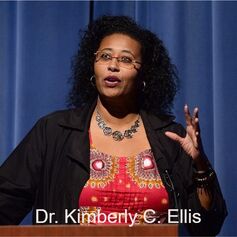 The Buccini/Pollin Group (BPG) is pleased to announce the promotion of Dr. Kimberly C. Ellis to a new, full time position of Director of Community, Arts and Culture for its Pittsburgh office. Kimberly C. Elis, Ph.D. is a Scholar of American and Africana Studies, an Artist, Activist and Entrepreneur, as well as a playwright, world traveler and international thought leader on culture, gender and social technology. She served on a Downtown Pittsburgh Partnership Committee to install a North Star Constellation at the center of Market Square and unveiled it with Mayor Ravenstahl and other stakeholders. And working with the Heinz History Center and Sam Black, Dr. Ellis served on a Committee to create and edit the historic landmark for playwright, August Wilson, which is permanently placed in front of the August Wilson House. "I have been working in the community for a long time, in many different areas, but always to help inform, empower and inspire. I am honored to take on this new position of Director of Community, Arts and Culture, with the Buccini/Pollin Group because it reflects my values and allows me to honor my community, empower artists, entrepreneurs, and workers, and to spark economic vitality throughout the Upper, Middle and Lower Hill, and the city of Pittsburgh. I have always been someone who thinks outside of the box and about big ideas, so this is a good fit." This is a newly created position that leverages her previous role as Lower Hill Historian and Cultural Legacy Consultant into a permanent role focused on engaging the community and empowering Hill residents, homeowners, artists and entrepreneurs, especially as BPG moves into the next phase of the Lower Hill development made possible by the advancing FNB Financial Center project. A longtime resident of the historic Hill District, Dr. Ellis is the founder of the Historic Hill Institute, co-created the “Build the Hill” Community Conference and remains a consultant on the history of the neighborhood and its historic preservation. She served as a fellow for the National Trust for Historic Preservation; and is responsible for launching the campaign to make living in “the Historic Hill District” popular. Today, residents say it without thinking twice about this purposeful awareness campaign. Dr. Ellis worked to secure the first Community Benefits Agreement in the State of Pennsylvania, co-created the Greater Hill District Masterplan and contributed to its historic preservation plans. She later worked with CH Planning to finalize urban planning for the historic Hill District. Dr. Ellis is a professional tour guide that gives tours of the historic Hill District and Pittsburgh and was featured in the New York Times for her work on the Underground Railroad in Pittsburgh. Most recently, Dr. Ellis served as the Historian and Artist on the I-579 CAP Park, where she created the History walls, a fictional character named, “Keisha” and wrote her storyline and dialogue. Keisha is at least one of the culturally-responsive elements that will be utilized in the Lower Hill Urban Open Space. In June 2017, Dr. Ellis was the Keynote Speaker for the John Hope Franklin Center for Reconciliation Symposium, which had its focus on Arts Activism, and in July 2017, she served as a member of the Tulsa delegation for the Initiatives of Change, "Just Governance for Human Security" Conference in Caux, Switzerland. At that conference, Dr. Ellis also earned a "Human Security X" certificate under the purview of the United Nations' "Initiatives of Change" program. Dr. Kimberly C. Ellis will appear as a lead historian and storyteller in the “Terror in Tulsa” documentary, which will debut on The History Channel on May 31, 2021. She continues to educate the public about the worst and still unresolved case of domestic terrorism in United State’s History. Dr. Ellis is also a freelance journalist, playwright, screenwriter and previously served as an adjunct professor at Carnegie Mellon University, teaching their inaugural course on “August Wilson Dramas” for their Literary Culture program. She teaches online for the general public. She can be found at DrKimberlyEllis.com. 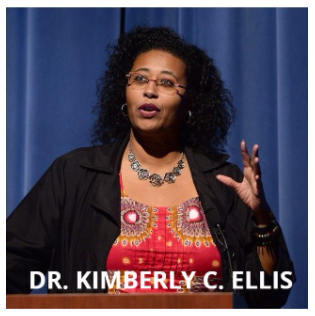 Contributing writer: Dr. Kimberly C. Ellis Contributing writer: Dr. Kimberly C. Ellis It’s time to tell a new story about Pittsburgh and of this land, the Lower Hill District, in particular. In 1829, a small set of families of Black people settled upon the Hill. At the time, it was known as Prospect Hill, Little Hayti and Arthursburg. With an attractive settlement with a good view, they had found a sweet spot. These sets of families were free and many were abolitionists, who became prominent members of the Underground Railroad. Some years later, [White families] began to settle in the area, as they found it desirable and many of them joined in as abolitionists. During the late 19th century, immigrants began flowing into what we now know to be the Lower Hill. Upon exiting the train station, they came—the Irish, the Italian, the Jewish, the Russian, the Black Freedmen who became known as African Americans. They all came and settled upon a new life in Pittsburgh, Pennsylvania—and in the Lower Hill. Soon, its seams were bursting and there was urban decay but still hopeful people making the best of the area. After World War II, there were many discussions by the federal government to renew American cities and engage in what we now know to be “urban renewal.” Pittsburgh was the first to be chosen and the Urban Redevelopment Authority was created in order to implement the program and receive the federal funds. Unfortunately, the plans that were made only partially came into fruition and the construction of the Crosstown Highway severed the physical connection between the Historic Hill District and the downtown. Disappointment and protests ensued. Further regional economic decline led to decades of dis-investment. The area around the former Civic Arena which we call “the 28 acres” remained a series of parking lots and only one high-rise was created out of the many that were designed for the site. While there were many inspiring activities that took place in the Civic Arena, much of the rest of the area was left undeveloped, unfinished and a major disappointment for the next 60+ years. Pittsburgh’s first experiment at urban redevelopment largely failed everyone and African Americans the most. To date, it has remained contested space and the redevelopment potential of the Lower Hill has not been realized. Enter The Buccini Pollin Group’s historic team. It was a wonderful experience to help design the CAP Park above the Crosstown Highway and we are working to expand many of the aspects behind the design. As an extension of the CAP Park, the FNB Tower Open Space means that you get to walk up or down Wylie Avenue and explore a gorgeous landscape that is meant to inspire you from top to bottom. There will never just be one thing happening in the Open Space or in the Park. We envision arts entrepreneurs selling their wares, performing onstage, showcasing their designs and knowing that their pieces are sitting comfortably in the offices, hotel rooms and lobbies being created by the development team. We envision some of the best food being offered in food trucks, at retail kiosks, in the food hall and more permanent spaces. The cultural vibrancy of the Open Space depends upon the people who are invited and sustained. And you are invited. For the last 60 years, the 28 acres has been contested space. Let's make it a celebrated space. It is time for us to write a new chapter of Pittsburgh that tells the progressive history of its past, as well as its future. Let us move forward with a new vision that honors and repairs the past, creates a better design for the future and forges a new path of shared prosperity expressed with this historic partnership. |
Archives
May 2024
Categories
All
|
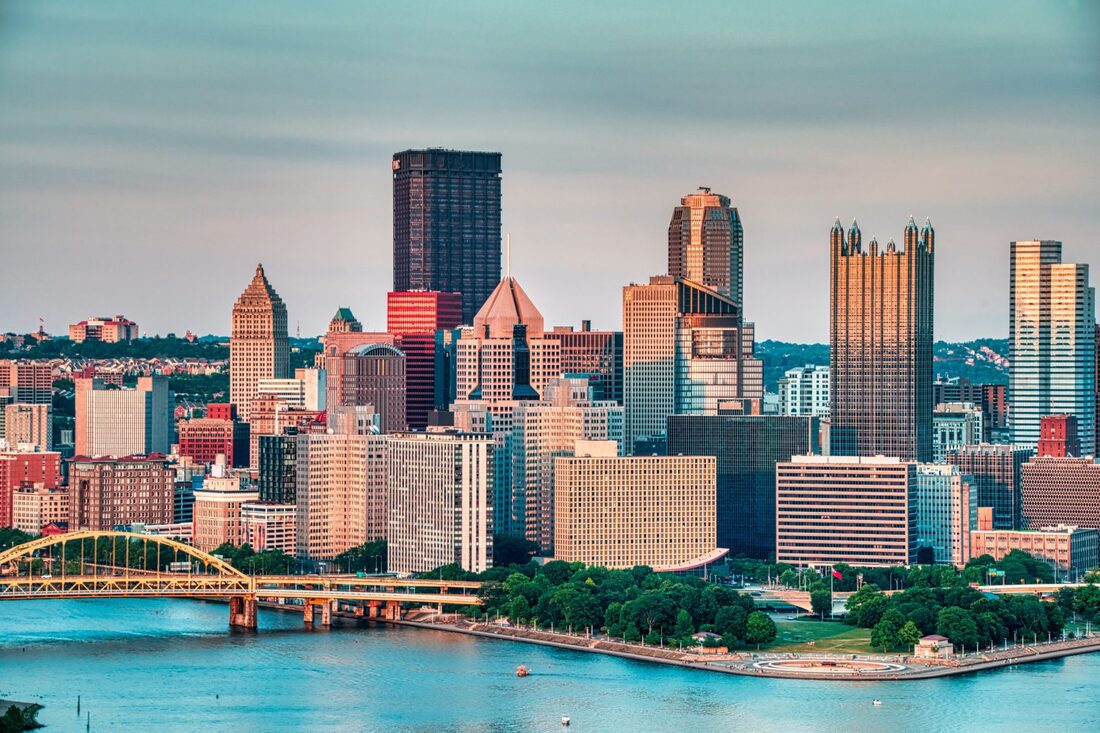
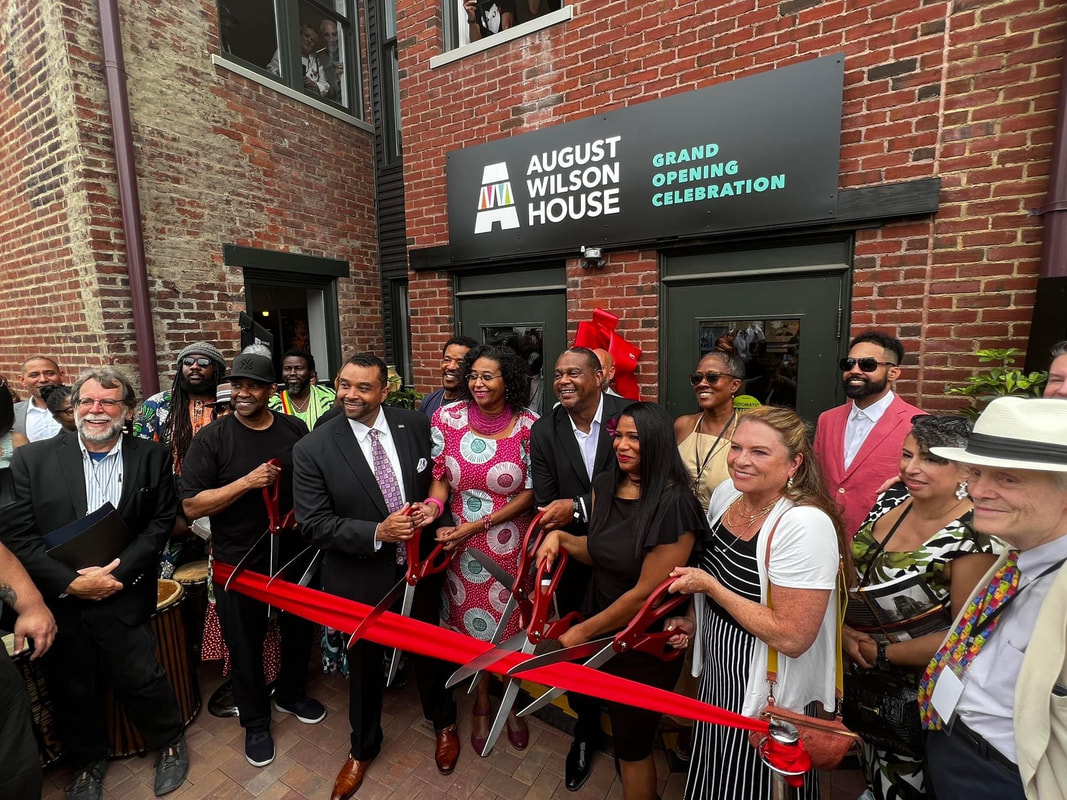
 RSS Feed
RSS Feed


